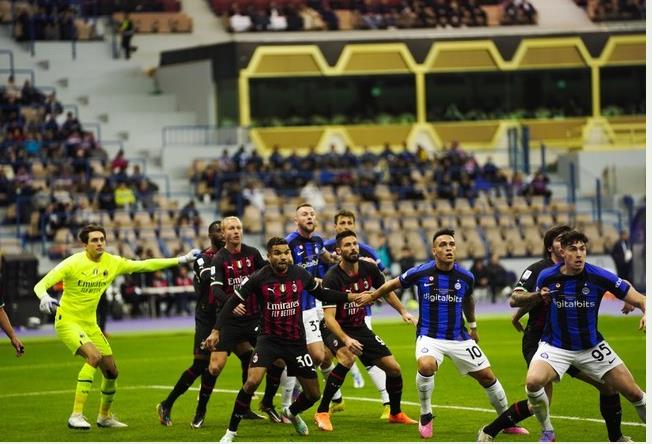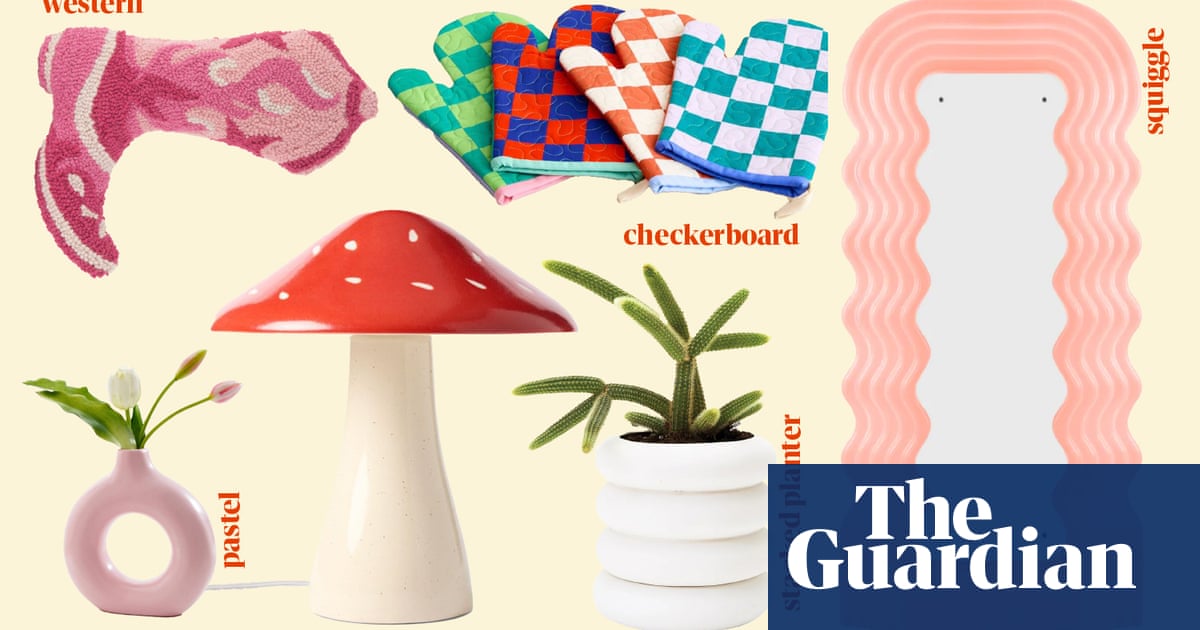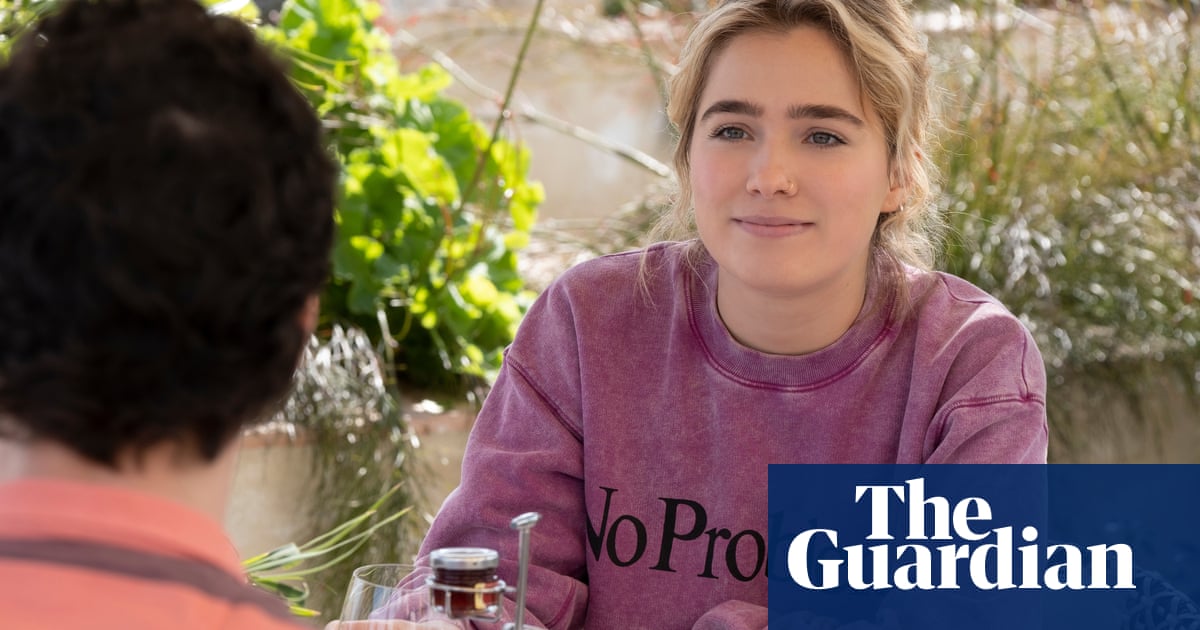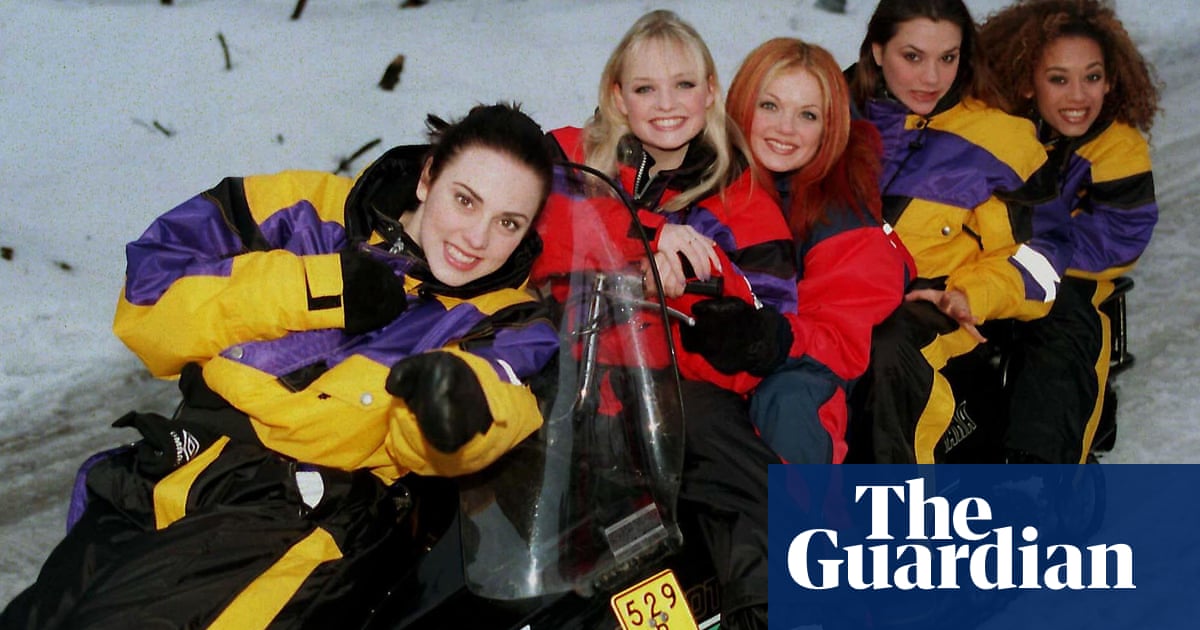
Awhite man whining about high school, his mediocre hometown or a faceless girl: that is what most people picture when they think of pop punk. In the 90s and 00s, all-male bands such as Green Day, Blink-182, New Found Glory and Sum 41 ruled the charts, looking like Jackass extras in Dickies pants and wallet chains and sounding – albeit mildly – like rebellion. Now, though, a diverse group of women are emerging who have kept the genre’s sense of belligerence and fun, but are developing it to create something youthful that also has a quality those older bands eschewed – emotional maturity.
Today’s pop punks go to therapy (I’m Gonna Tell My Therapist On You by Pinkshift) and sing self-reflectively about relationships. Their vocals recall the soprano gymnastics of the genre’s 00s matriarch, Paramore’s Hayley Williams more than her nasal male contemporaries. Pop punk has become a defining sound of 2021: Olivia Rodrigo’s splenetic Good 4 U recently spent five weeks at No 1 in the UK, the longest stretch for a rock song for 25 years, while Willow, the daughter of Will Smith, released a pop punk album last week that discusses her personal growth and confronts the fake people in her life.
“I’m not really your regular white, male pop punk vocalist. I’m very girly; no one looks like me,” says a grinning Edith Johnson of Meet Me @ the Altar, a pop punk trio comprising women of colour. While Johnson embraces a feminine neo-punk aesthetic, with long, neon braids of changing colours, it is not a prerequisite for the new pop punk bands. “We can be feminine, masculine – there are really no rules now.”
Johnson’s voice has a soulful dimension, while Ashrita Kumar of Pinkshift has a lilt and pouty quality that is not unlike that of Gwen Stefani. “Black and brown women have a different vocal range and abilities and take inspiration from different places,” says Yasmine Summan, an alternative culture journalist and the co-host of the lifestyle podcast On Wednesdays We Wear Black. “Pop punk isn’t just a guy who sounds like [former Blink-182 singer] Tom DeLonge, it’s a woman who sounds like Ashrita.”
From the outside, it might seem as if these women have emerged from nowhere. For pop punk, the 2010s were a relative dead zone. Despite retaining and gaining fans, the legacy bands struggled to remain relevant while newer bands such as State Champs and Neck Deep, still majority white and male, largely trod the same water. As the writer Dan Ozzi asked of artists and fans in a 2013 article for Vice: “If pop punk is inherently this juvenile, is it meant to graduate into adulthood?”
It seemed not. Adrian Choa, a 32-year-old pop punk fan, recalls returning to the UK at the start of the 2010s after a long stint in California, one of the genre’s spiritual homes, to find that pop punk was mocked and indie had taken over. “There’s something really at odds with British culture – and British male bravado especially – about squeaky voices singing about ‘going to the mall’ and skateboarding,” he says. “Pop punk is so easy to satirise.”
More gravely, abuse of power against fans was rife. Austin Jones, a YouTuber who recorded pop punk cover versions, was given a 10-year prison sentence in 2019 for receiving indecent images of children. Jake McElfresh, AKA Front Porch Step, admitted sexting girls and was dropped by his label. Kenny Harris, Panic! at the Disco’s touring guitarist, left the band after being accused of inappropriate behaviour. Brand New’s Jesse Lacey apologised after women and a 15-year-old girl accused him of sexual misconduct. There are numerous other cases. Warped Tour festival, a bastion of pop punk, closed at the height of the #MeToo movement because, according to the organiser, Kevin Lyman, some bands didn’t want to be associated with Warped Tour artists.
During the pandemic, members of other bands affiliated with pop punk – Joey Armstrong of Swmrs and Simple Plan’s David Desrosiers – were accused of sexual misconduct, while the California-based label Burger Records shut down after allegations of sexual abuse were made against several musicians associated with it. In a statement, the label apologised “to anyone who has suffered irreparable harm from any experience that occurred in the Burger and indie/DIY music scene”. Interest among gen Z – those born between the mid-90s and early 2010s – in how abuse had affected the genre grew. “People actually started saying we shouldn’t support these bands any more,” says Kumar. “Maybe it’s not great that a bunch of straight white guys run this scene.”
Meanwhile, a 20-year fashion cycle combined with gen Z’s predilection for nostalgia has pointed the dial back towards pop punk. The vast majority of these artists were too young to have been part of the 00s scene, but Olivia O’Brien, an R&B and pop artist who has dabbled recently in pop punk, echoes the other women when she tells me: “When I was a kid, I saw all these teenagers who were so cool. That’s everything I wanted to be: a teenager in the early 00s.”
What makes this new era unique is that the young women involved are influenced by a corner of 00s pop culture that repelled most boys and men. Throughout the decade, Disney and Nickelodeon stars such as Demi Lovato, Miley Cyrus and Hilary Duff released pop rock albums with guitars and abrasive – but cute – visuals. Daisy Rock guitars were coveted for their supposedly girl-friendly designs, while the film Freaky Friday, released a year after Avril Lavigne’s 2002 debut, starred Lindsay Lohan in an all-girl rock band (Lohan rode this wave of tween love with a Disney rock-style album the following year). “Someone complimented me the other day, like: ‘Your voice is so sweet, it’s almost Disney,’” says Johnson. “All of us are so collectively, kinda subconsciously, influenced by Disney rock.”
Johnson’s search for female representation took her to Disney rock and Lavigne, a significant influence on this wave of bands; Willow Smith has collaborated with her. Bonnie Fraser of the pop punk band Stand Atlantic is old enough to remember Lavigne’s 2002 heyday and says it didn’t matter that she was a manufactured pop star: “As a kid, you don’t know about marketing; you take everything at face value. As manipulative as that sounds, the ends justify the means, because she was there as someone to look up to.”
Younger artists came of age in the late 00s, by which time Lavigne had abandoned her tomboy image and started wearing more conventionally feminine pink and black attire. “People clowned on Avril for being a girly woman in pop punk and doing her own thing and now they’re so heavily praised for doing that,” says the pop singer Chloe Moriondo. “I always was kind of hoping for more bands with women. But I took what I could get.” This included Paramore’s Williams, lovingly name-checked on Moriondo’s track Favorite Band (“Hayley just gets me the way you never did”).
Times have changed even within this girl-led sphere. The black female rocker Fefe Dobson emerged amid the Disney rock trend, but her impact was dampened by Lavigne’s ubiquity. When Dobson first saw Lavigne’s video for Complicated, she panicked. “I’m this black girl, my hair’s curly, I can’t get it as straight as hers, I have a booty, I didn’t fit into my Dickies like that. I knew in that moment it’s gonna be a tough road.” Her second album was shelved by her label, who dropped her shortly afterwards. “They thought it was ‘too dark’ and that I didn’t know who I was. They didn’t know who I was.” In the following years, songs co-written for that album appeared as singles on Disney rock albums by Miley Cyrus and Selena Gomez. “Why was it not too dark for them, then?”
The male artist DeWayne, who is influenced by pop punk, says: “As POC [people of colour] artists in alternative music, you have to be 20 times as good-looking, 20 times as nice; you gotta walk the line, you can’t be too feisty or too straight-edged. You have to be perfect. I really hope we can break that soon.” Dobson is now cited by music journalists – and artists – as an influence on the new wave, from Willow to Rodrigo.
The pop punk rebirth is happening in two strains: within alternative rock, and in the mainstream by non-rock artists. “Punk was the next thing to come around for pop to try on,” says Han Mee, the frontwoman of the Manchester pop punkers Hot Milk. “Olivia Rodrigo hasn’t been loading amps or playing empty rooms and selling merch. There’s a difference between Jxdn [a TikToker who has released pop punk with Blink-182’s Travis Barker] and a band like Hot Milk. He’s sat in a studio in LA and never played a show.”
It is uncertain whether money or attention will trickle down to the DIY artists, but from Tramp Stamps being accused of being an “industry plant” to accusations of plagiarism being aimed at Rodrigo, the message is clear: nod to the genre if you will, but respect it.
Rodrigo’s popularity notwithstanding, many still see pop punk as male-led, by figures including the rapper turned punk Machine Gun Kelly and the social media star Lil Huddy. Sophie K, a co-host of On Wednesdays We Wear Black, thinks that record labels did a “dick test” to check whether pop punk was sellable again. “When they experimented in this movement, they experimented with Yungblud, Machine Gun Kelly, loads of white males, before they went to a light-skinned Filipina [Rodrigo] and now a light-skinned black woman, Willow.”
Regardless, mainstream acts such as Rodrigo will inspire young women, just as Disney rock artists did a generation earlier. Meet Me @ the Altar have banned swear words from their songs to entice parents – something that would horrify male punks who write songs called Dirty Rotten Bastards and Dick Lips – but the band aren’t bothered by the old bro codes. “If a little girl wasn’t allowed to go to our show because her mum was like: ‘It’s a bit inappropriate for you,’ we just lost an important girl,” says Johnson. “We want our fans to be able to sing to our music. If swear words stop brown girls and little girls listening to our music, then we won’t do it.”
With a new album out this year, the pop punk timeline has matched up with an excited Dobson: “It’s reignited a fire in me, for sure.” This time, it feels as if no one will be left behind.
Meet Me @ the Altar’s EP Model Citizen is released on 13 August on Fueled By Ramen. Chloe Moriondo’s EP Blood Bunny (Acoustic) is out now on Fueled By Ramen/Public Consumption












